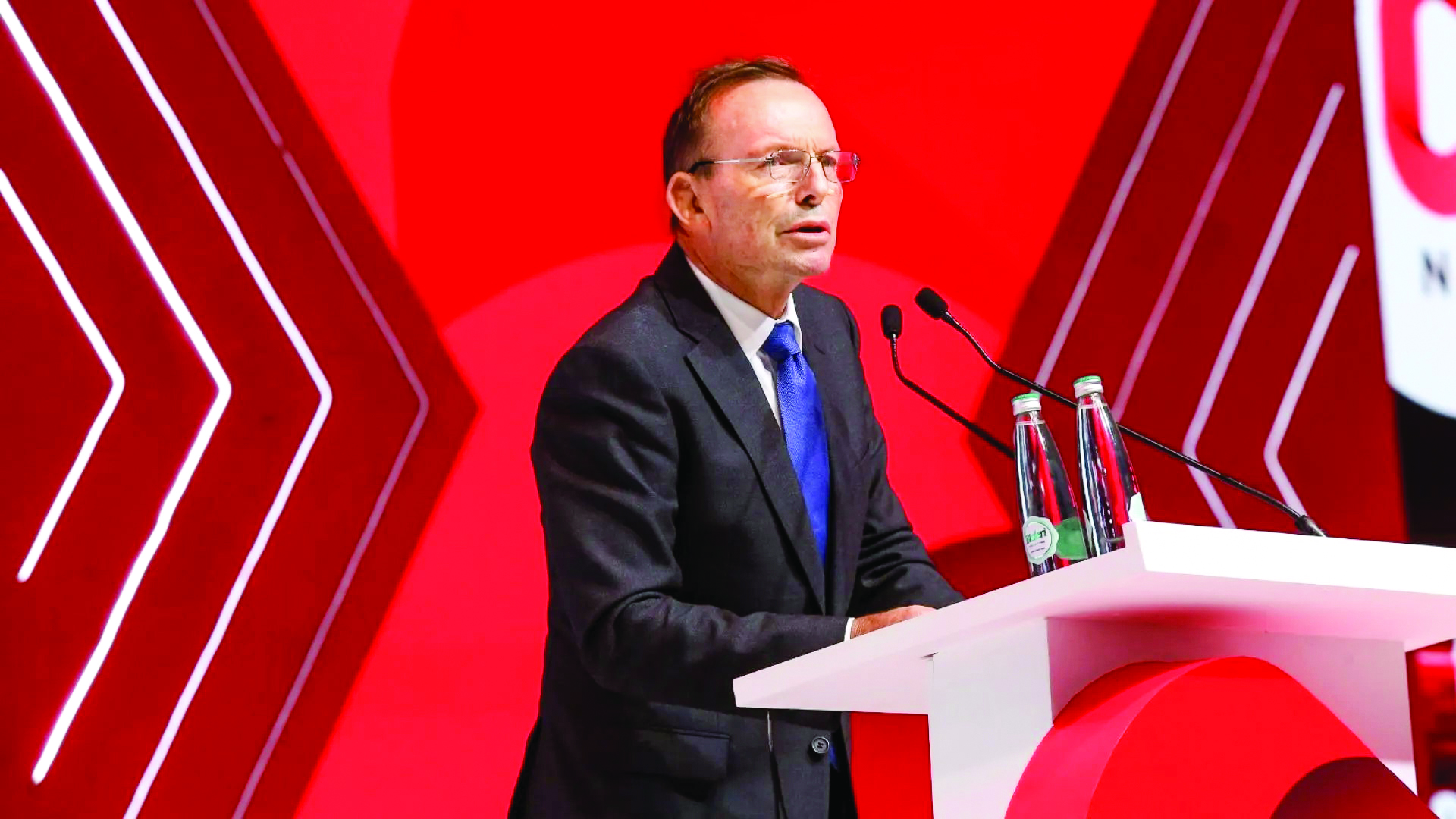He said Trump is disrupting the status quo while preserving alliances, prioritizing China’s economic challenge.
New Delhi: Former Australian Prime Minister Tony Abbott addressed the Russia-Ukraine and Gaza wars during his keynote speech at NXT Forum 2025, held at Bharat Mandapam in New Delhi. He emphasized the importance of global collaboration for a better future
Abbott stated that the war in Ukraine might soon conclude, albeit with Russian aggression being rewarded. Similarly, the conflict in Gaza could subside while Hamas, a terrorist organization, remains intact. Meanwhile, China, as India is acutely aware, continues to escalate its belligerence, particularly against Taiwan—a practically independent, democratic, and free state. The alliance of convenience between authoritarian regimes such as China, Russia, Iran, and other communist, militarist, and Islamist dictatorships stands in contrast to the fractured and uncertain stance of free nations.
Beyond the devastating loss of life, the Ukraine war has led to significant global ramifications, including soaring energy prices and food shortages. These developments serve as a stark reminder of how rapidly stability can erode under leaders more focused on expanding power than ensuring global well-being. Leadership plays a critical role, and in this regard, India’s governance has delivered remarkable results—fueling the world’s fastest economic growth, extending clean water, sanitation, reliable electricity, and connectivity to rural areas, while simultaneously modernizing urban centers with mass transit systems, expressways, and a robust economic foundation. Unlike China, India’s progress is anchored in democratic legitimacy and governance under the rule of law.
However, the pressing question remains: will the Trump ascendancy bring more benefits than harm? No modern president has had a more immediate and profound impact in his opening weeks. Domestically, he has reversed the so-called Greek transition and halted the reoccupation policy driven by climate concerns. He has dismantled the rigid ideological frameworks influencing American war policies, including hiring practices based on immutable human characteristics. He has firmly asserted the existence of only two genders. He has assigned the task of making government more efficient to one of the world’s most renowned industrialists. He has tackled the chaos at America’s borders with a dramatic strategy—threatening a 25% tariff on Mexico, militarizing the border to curb the relentless influx of undocumented migrants, and safeguarding private enterprises.
While these initiatives appear effective, his leadership style has raised concerns. He has openly ridiculed Canada’s Prime Minister, proposed transforming Gaza into a beachfront akin to Miami, and questioned the integrity of President Volodymyr Zelensky by suggesting he instigated the war to benefit from American financial aid, later attempting to retract his statement. At times, he has urged people to take his words seriously but not always literally. These actions have sparked debate on whether America’s historic role as a beacon of hope—a nation willing to pay any price, bear any burden, support allies, and confront adversaries to uphold liberty—has been replaced by an admiration for authoritarian leaders who suppress their citizens and invade neighboring nations. Or is his approach simply a pragmatic effort to distinguish between true strength and perceived weakness?
At this stage, only time will tell. Rather than altering America’s fundamental course, Trump is disrupting the status quo while maintaining core values and strategic interests. His stance on tariffs may penalize consumers, but the principles behind alliances like the Quad remain intact. He views China’s economic rise—built on exploiting free trade—as the primary global challenge rather than entangling the U.S. in foreign conflicts.
Despite his controversial rhetoric, Trump’s presidency has influenced global policies, prompting the UK to increase military spending, Middle Eastern nations to rethink Gaza’s reconstruction, and India to lower tariffs. His “America First” approach makes secret deals over Ukraine or Taiwan unlikely, as no president would willingly cede strategic advantages to rivals.
Under his leadership, U.S. foreign relations will become more transactional, with allies expected to contribute more to their own defense while offering America greater economic access. This could lead to fewer barriers for U.S. investments and a stronger global position against China’s economic influence.
As J.D. Nash notes, many democracies are limiting free speech, deindustrializing in pursuit of climate goals, and reviving identity-based discrimination. While Trump may not be the preferred global leader, he could be the necessary one—countering military weakness, economic stagnation, and cultural uncertainty. His presidency may ultimately shift focus from divisive politics to freer trade and stronger democratic alliances.
This brings us to India—a great democratic nation that upholds the rule of law and now stands poised to replace China as the world’s manufacturing hub. As a supply-chain partner that free nations can trust, India’s role on the global stage is becoming increasingly significant. A decade ago, Abbott referred to India as the world’s emerging democratic superpower. Under Prime Minister Narendra Modi’s leadership, that emergence is complete. Today, India is firmly established as the world’s second democratic superpower. At a time when the unpredictability of the first superpower creates uncertainty, the stability of the second presents a crucial opportunity.
He concluded his speech by expressing confidence that the Indo-Pacific will shape the coming century, emphasizing his hope that India, rather than China, will lead its trajectory. However, he stressed that this would depend on America’s sustained involvement in global affairs.

